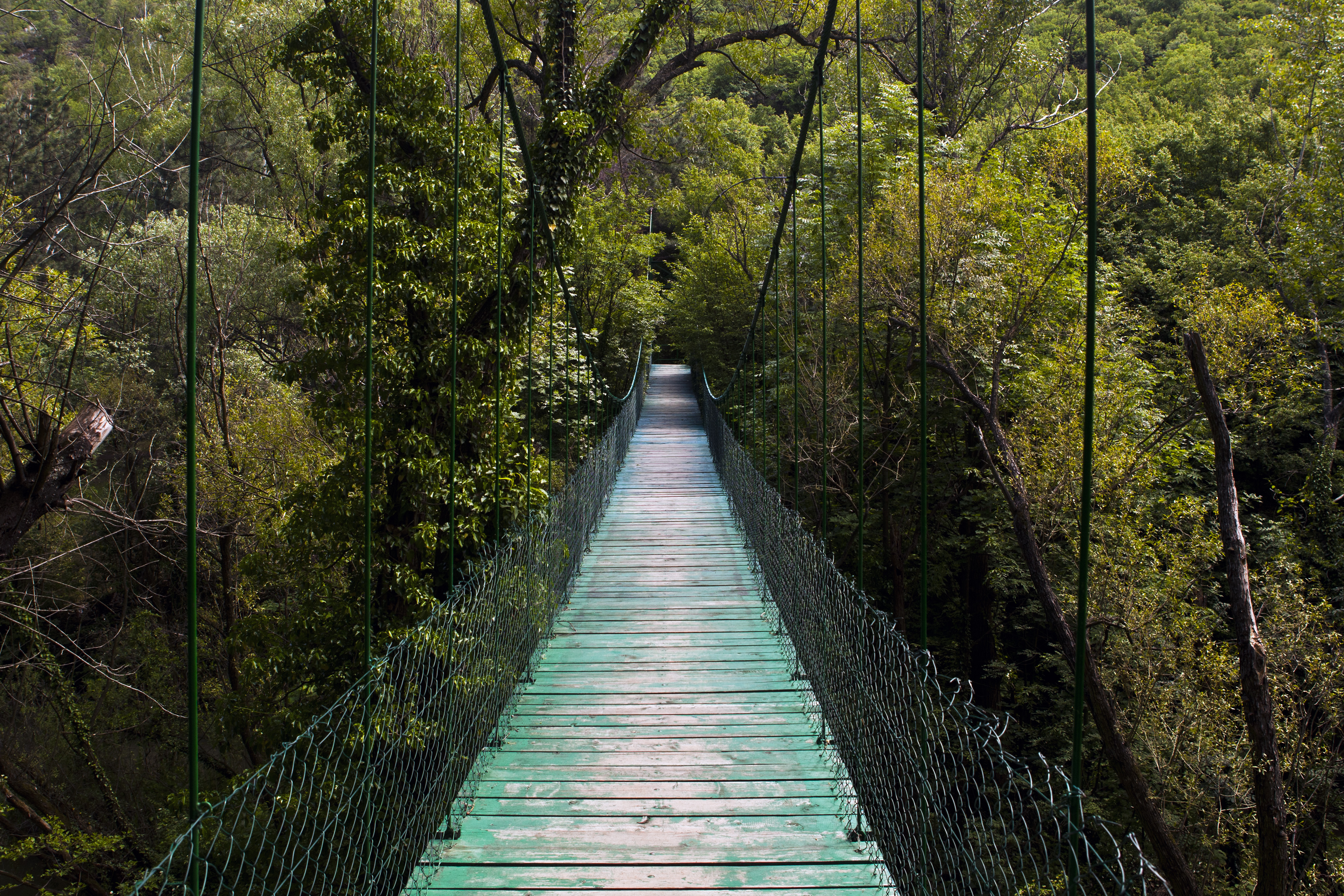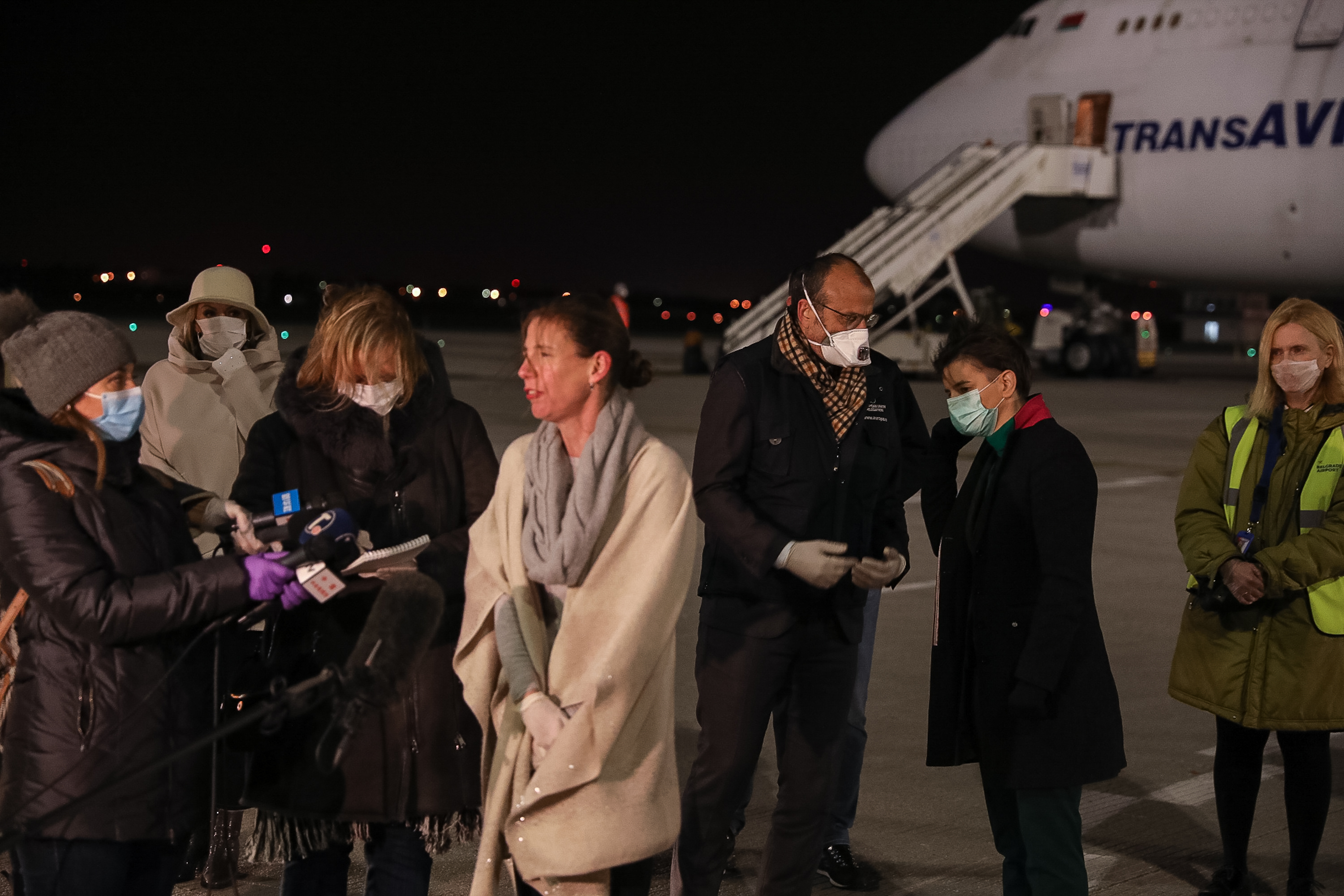In conversation with Francine Pickup, Resident Representative UNDP Serbia
Finding opportunities in crisis: a view on the post-COVID-19 future in Serbia
June 18, 2020
Lazarev Kanjon is part of the protected areas of Serbia. UNDP is working to protect the environment and mitigate the effects of climate change. Photo: Marko Risovic / UNDP Serbia
How will COVID-19 change the future of development, and why?
Now that the worst of the pandemic appears to be over in some parts of the world, the biggest risk I see is that everyone will just go back to normal, that we don’t learn from this crisis and that it will have no impact on the future of development.
The crisis showed us that people and institutions can make massive adjustments in our lives overnight and that in crisis, we can work together to help each other. For me the uplifting takeaway from the crisis is that many recognized that the ‘old normal’ was not good enough and that there are opportunities from the crisis to create a different way of living.
The Western Balkans has – so far - been relatively sheltered from the impact of COVID-19. Governments and people recognized the seriousness of the threat to fragile public health systems. Here in Serbia, by the time we offered to procure medical supplies, the government had already done it but lacked an efficient means of transport. UNDP Serbia quickly organized 15 cargo planes with 720 tonnes of ventilators, protective equipment and COVID-19 tests to help weather the immediate health crisis. In parallel, the government introduced strict curfew measures, limiting movement, and fiscal measures, limiting impact on business and employment.
Because of this decisive response and Serbia’s limited integration in global supply chains, the impact of the first wave of COVID-19 was not as bad as it could have been. But as movement restrictions across Europe relax, the risk of a second wave of infection increases. And beyond the health crisis, a recession in Europe could trigger a deterioration of the situation in the Western Balkans, with its reliance on European markets.
We are focused on doing what we can to ensure COVID does change the future of development. Working with key leaders across society, business, the tech industry and Government, we can recover in ways that bring a wiser, kinder, greener future. The odds are stacked against us due to political and economic pressures to go back to before. But COVID is a crisis that brings a once-in-a-lifetime opportunity to tap into the potential of social and human capital and power of technology to bring the future we want.
How can Serbia (and possibly the world) achieve that ambitious result?
I see three areas of opportunity in Serbia where we can learn from the crisis and build back better: strengthening health systems, creating decent work opportunities, and building resilience.
The health crisis starkly brought home the importance of investing in a strong and universal public health system and the importance of prevention and not just treatment. People also intimately understood the link between environment and health, with air pollution and non-communicable diseases increasing people’s vulnerability. Serbia has the opportunity now to invest in medical and support staff, boost local capacities to produce medical supplies and build on its already impressive advances in digital transformation to update the health system.
The economic impact of COVID will leave many people vulnerable, especially in Serbia’s large informal economy, and is likely to be deeper and longer lasting than its health impact. Countries need to find ways to protect and harness the informal economy and provide good quality work. The lockdowns have shown us that a different way of working is possible, with more flexible working arrangements, use of digital tools and opportunities in e-commerce. Online presence improves reach and increases the competitiveness while ensuring economic resilience for possible future market disruptions.
Francine Pickup, Resident Representative waits for supplies to fight COVID-19 to be unloaded. Photo: UNDP Serbia
While physical infrastructure, such as medical facilities and equipment are critical in the health crisis, the social capital is just as important for building resilience. As proven before, communities with stronger social connections and trust are more resilient to shocks. The solidarity that binds people together and builds trust in institutions is the glue keeping people safe and helping them cope and build back stronger.
COVID also exposed the importance of the environment for our resilience and how, conversely, over-exploitation of the natural world created this crisis in the first place. I hope that people’s expectations have changed through this crisis as they realise that adjusting their behaviour can have a positive impact on biodiversity, lower greenhouse gas emissions and air pollution. The climate action needed is radical, but the COVID-19 crisis has shown us that it can be done, making this a good time to invest in the green agenda.
What can we do as UNDP to help countries make it happen, in very concrete ways?
In Serbia, we organized a Challenge Call for local corporate and research & development solutions for health resilience in partnership with the Government, Germany and USA. In addition to increasing the national public health system capacities to respond to similar challenges in the future, the Challenge will stimulate local business development, innovation and entrepreneurship. Following one of our digital meetups with the data community, we received a request from the Ministry of Health to work on establishing an e-health system and the introduction of a system for efficient monitoring of infectious diseases.
UNDP is supporting the Government-led Socio-Economic Impact Assessment so that we can better understand the impact of the crisis on work, including for those in the informal economy. Our Accelerator Lab is exploring with Returning Point, a diaspora organization, how to retain the 400,000 Serbian migrants who returned to Serbia in the wake of the crisis and how to attract digital nomads and other skilled workers to work from Serbia, thereby addressing the huge challenge around depopulation.
We are supporting transition to a greener economy, helping the government to switch to renewable energy sources such as biomass, which creates new jobs and brings investments to rural areas. We also want to ensure that new funding and financing made available in the COVID response has a broader impact on the Sustainable Development Goals, supporting the achievement of long-term societal goals. We are working with the Ministry of Finance to develop the capital market, including instruments such as Green Bonds.
In partnership with the Government Office for IT and e-government, we were able to accelerate the outpouring of solidarity between citizens and between citizens and the state. We set up a digital platform connecting volunteers and the elderly and other vulnerable groups during the lockdown. In parallel, we helped businesses and cultural institutions to offer their services and content online. Now our focus is on ensuring that new digital solutions are accessible to all, including the elderly, Roma and people with disabilities, to avoid deepening the existing digital divide.
What one lesson or experience do you wish to share related to the above.
UNDP’s role in an upper middle-income country in Europe is to inform a narrative about how to make positive change and to build an ecosystem of partners to make that change happen. It is hard to talk about what the recovery could look like when the focus is on immediate needs and quick fixes to bring things back to way they were. The pandemic gives us an opportunity to galvanize people to make positive change and jointly shape a new reality through dialogue and designing new futures with key influencers.
UNDP’s role of integrator means creating new partnerships and tackling complex development challenges simultaneously from several angles, with a portfolio of targeted actions. Our global network of Accelerator Labs is there to help us learn quickly and guide us towards innovative solutions.
In Serbia, we learned that from our work on depopulation when we steered the narrative from stopping the negative population trends at any cost, towards accepting the new reality and seeing what can be done to maximize the use of existing human capital, in the country and abroad. Now that over 400,000 citizens returned to Serbia from the diaspora due to the COVID-19 crisis, this question becomes relevant more than ever.
Editor’s note: Click here for more on UNDP Serbia COVID-19 response.

 Locations
Locations


